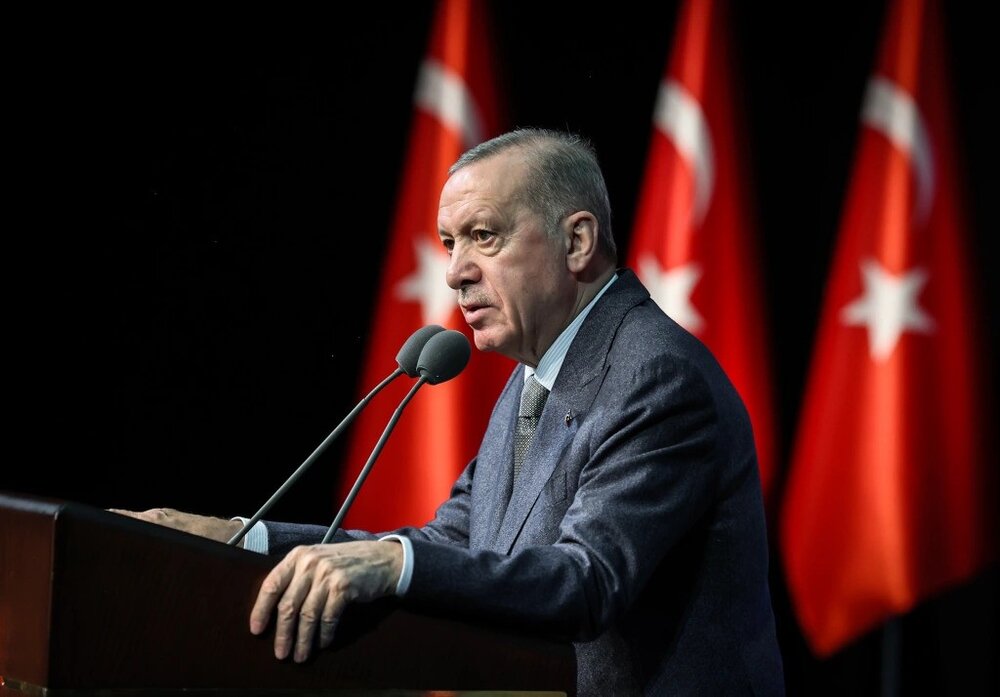Cold War in West Asia; Persian Gulf against Ottoman Türkiye
With the fall of Bashar al-Assad’s regime in Syria and the American focus on the Indo-Pacific, the Turkish government sees the opportunity to expand its influence in Syria and realize its “neo-Ottoman” ambitions, which, according to the American publication, puts the Persian Gulf countries against it. gives
According to Isna, the American media in an article referring to the fall of Bashar al-Assad’s regime in Syria and the expansion of Ankara’s influence in this country, reports on “a widespread regional conflict over the acquisition of regional influence and power”.
According to the Hill News site, the West Asian region is going through fundamental changes and new competitions are emerging in the geopolitical arena. For several decades, the main conflict in the region was a kind of “Cold War” between the countries of the Persian Gulf. This struggle, which the American media believed was full of sectarian and strategic divisions, fueled “proxy wars and power struggles” throughout the region.
But now this long-standing rivalry has given way to a new conflict, Hill writes. The fall of the Syrian government and the re-emergence of Türkiye have created new relationships that, according to the American publication, have changed the equations of influence in the region and the leadership of the Sunni world.
According to Hill’s report, Iran has also understood the increasing challenges from Ankara and Turkey’s “neo-Ottoman” tendencies, and according to this report, it is trying to enter this arena by reorganizing its relations with Arab countries.
Referring to the opportunism of Turkey in the volatile and unstable era after the fall of Assad, the American media reported that during the presidency of Recep Tayyip Erdogan, Turkey tried to expand its influence in the region by using the levers of economic, military and ideological pressure. “From the invasion of northern Syria to deeper involvement in Libya, Somalia and Qatar, Turkey has tried to establish itself as a dominant regional actor,” the report said.
Erdogan’s rhetoric about restoring the glory of the Ottoman Empire and appealing to Türkiye’s past has been accepted by domestic audiences, but has caused concern among regional powers. Türkiye’s rise to power is not only a political or military issue, but also redefines the competition for the leadership of the Sunni world. According to Hill’s report, Saudi Arabia and its allies have taken the position of “leadership of Sunni Muslims” by using religious places and massive financial resources for years, but now Turkey has challenged this narrative and supported currents such as “Muslim Brotherhood”. has done, a group that the Persian Gulf countries consider an existential threat against them. The leaders of these countries gradually come to the conclusion that Türkiye is not only a competitor, but also a destabilizing factor.
The competition between the Persian Gulf countries and Türkiye is currently expanding in various fields. In Libya, Türkiye’s support for the National Unity Government based in Tripoli contrasts with the UAE and Egypt’s support for Khalifa Haftar’s forces. In the Horn of Africa, Turkey’s growing presence in Somalia has raised alarm bells in Riyadh and Abu Dhabi, as Saudi Arabia and the UAE see the region as vital to their security and influence.
Economic competition has also intensified this enmity. Türkiye seeks to become a global business center and takes advantage of its position as a bridge between Europe and Asia. In contrast, the Persian Gulf countries are making heavy investments in infrastructure and alliances to thwart Ankara’s ambitions. This is not only a competition for influence, but a broader struggle over the direction of power and development in the region.
Hill considers measures such as de-escalation between Iran and Saudi Arabia to show Tehran’s desire to reduce tensions with the Persian Gulf countries, as well as the common desire of the parties to restrain Turkey’s ambitions, which “provides Iran’s pragmatism in the face of this structural conflict between the Persian Gulf and Ankara.” ” shows.
According to The Hill, this emerging rivalry has far-reaching implications, and unlike previous rivalries in the region, this time the conflict is fluid and unpredictable, which could exacerbate the risk of miscalculations. Hill also believes that a relatively formal coalition will be established between the Persian Gulf countries, the Zionist regime and foreign actors such as the United States and Europe.
According to the American media, the United States, which has long been the dominant foreign actor in the region, has turned its focus to the Indo-Pacific region and created space for the expansion of regional powers such as Turkey. Meanwhile, Russia and China are carefully adjusting their positions in this new order. Russia’s relations with Türkiye, however pragmatic, may be strained if interests conflict in Syria or the Caucasus. China is also strengthening its relations with Iran and the Persian Gulf countries to secure energy resources and expand the Belt and Road Initiative.
According to the report, regional leaders must decide whether to confront these developments with creative diplomacy or let the opportunity for stability and cooperation slip away. The report states: “The structural conflict between Türkiye and the Persian Gulf states indicates a profound change in which Iran plays a key role to counter Ankara’s ambitions.”
end of message
RCO NEWS
RCO


















